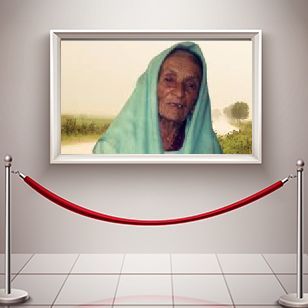
CEO Insights Hall of Fame: 8 Legends Who Keep India Evergreen

Kinkri Devi: A Resilient Spirit Who Defeated Illegal Mining in Himachal Pradesh

From the mid-1900s to the early 2000s, Kinkri Devi, a brave woman, ventured to speak out against illicit mining and quarrying in her own state—Himachal Pradesh. Despite the fact that she was illiterate, Kinkri was actively involved in changing society. She brought legal action against 48 mine owners who were negligently drilling on the hills in an attempt to make money, disregarding the negative effects that followed. The Supreme Court first ignored the case, but after Devi Ji embarked on a 19-day hunger strike, her appeal was eventually granted. As her narrative gained international attention, the court eventually placed a complete ban on mining in 1947.
In the Sirmaur district of Himachal Pradesh, in the village of Gathon, Kinkri Devi was born in 1925. She had a challenging childhood since her father was a Dalit farmer. In her early years, Devi started working as a domestic worker as she had few opportunities to receive an education. During the period that Kinkri Devi was employed as a sweeper, she saw firsthand the extensive environmental damage that was occurring in many areas of the hills of Himachal Pradesh.
Taking On Powerful People to Stop Illegal Limestone Quarrying
She observed the declining condition of the surrounding terrain as a result of uncontrolled quarrying that ruined the once-prosperous paddy fields and contaminated the water supply in several parts of Himachal Pradesh's famous highlands. She made the decision to speak out against mining after learning of its detrimental effects on both the environment and human life.
In Sirmaur, limestone quarrying was a significant industry. Large-scale quarrying resulted in degraded agricultural land, less wooded areas, and poisoned water sources. The destruction of her cherished hills was too much for Kinkri Devi to bear. To combat environmental degradation, she started her campaign by educating the local population about quarrying. After noticing her efforts, the volunteer organization People's Action for People in Need decided to help her.
Garnering Widespread Public Interest
Devi finally filed a public interest case against 48 mining owners in the Shimla High Court in 1987. She said that the area's natural atmosphere was being destroyed by the careless mining practices of the mine owners. However, Kinkri Devi was accused of extortion by the mine owners, who denied all of these claims.
Victory Came Her Way After Constant Battle
After her public interest litigation (PIL) went unanswered, she went to Shimla and embarked on a 19-day hunger strike in front of the court. By the time the court chose to hear the case, Devi was already well-known across the country. Her fight paid off in 1987 when the court restricted mining in her cherished hills and outright banned hill blasting. Her opponents threatened to kill her if she didn't drop the lawsuit after realizing they would have to cease their illicit activities. Devi, however, was not deterred by them.
Also Read: CEO Insights Hall of Fame: 9 Unsung Heroes Who Reinvented Healthcare in India
Her Resilient Spirit Dawned a New Age for Himachal Pradesh
Kinkri's resilient spirit ushered in a new age for Himachal Pradesh. Despite her lack of literacy, she educated the public about environmental issues and the consequences of unregulated mining.
Her tale shows us that we only need the guts and dedication to stand up for what we believe in, even when strong forces are against us.
She has demonstrated that one person can make a big difference.
In 1995, Kinkri Devi was acknowledged for the first time as a prominent environmentalist on the global scene. Hillary Clinton, the then-first lady of the US, extended an invitation to Kinkri Devi to attend the International Women's Conference in Beijing. She was asked to share her incredible experience with the world and light the lamp at the conference. Speaking to the audience, she said that the magnificent Himalayas were being destroyed by illegal limestone quarrying and that it was the responsibility of common people like herself to protect the environment. In 1999, Devi was bestowed with the Jhansi Ki Rani Lakshmi Bai Stree Shakti Puraskar.